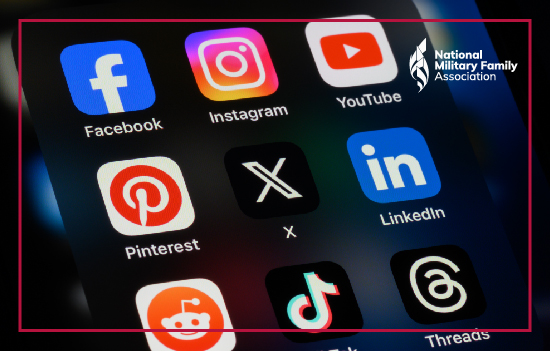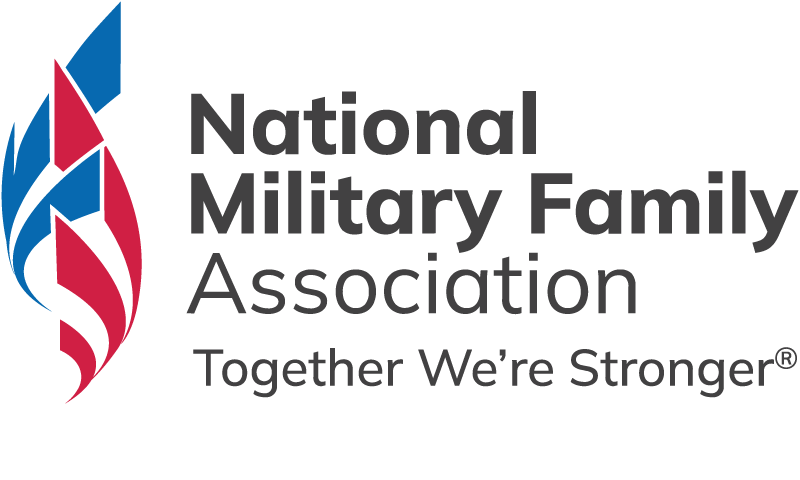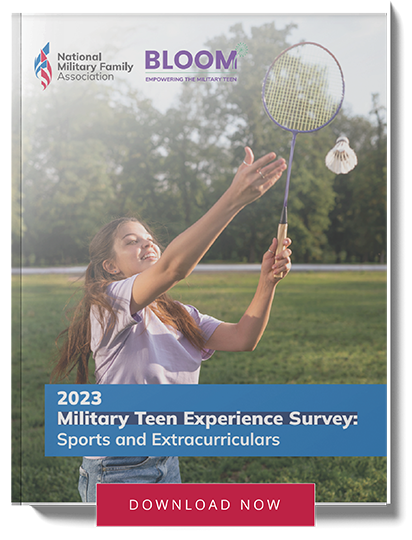What the Surgeon General’s Warning Means for Military Teens

The Surgeon General announced today that social media should come with a warning: Parents, these platforms are dangerous to your adolescent’s mental health.
Warning labels, like those on cigarettes and alcohol, are some of the strongest tools our nation’s top health officials can use to warn the public of dangers and empower us to keep ourselves and our families safe.
For years, public health officials, teachers, and parents alike have decried the harm posed by social media for their kids and teens. Publicly, the platforms have said for two decades that they’ll take the appropriate action to keep our kids safe. (Remember Instagram for kids?) But little change has been made.
The dangers of social media for kids are clear: from bullying to body image issues, algorithms feeding kids misinformation and conspiracy theories, to drugs in the DMs and sexploitation… our virtual town square is a mental health landmine for adolescents.
While the nation, with Dr. Murthy, Congress, and the social media companies, will have to figure out a path forward for America’s kids, we, as military families have to consider our teens’ social media use even more carefully.
Military families often rely on social media differently than our civilian friends and family. NMFA talks to hundreds of thousands of military families on social media every year, and that’s probably because you, like we, use it to stay connected through military moves, trainings, deployments — whatever military life throws at you. New to a base? Join the Facebook Group. Need to meet a new friend? Follow my friend @momindcity on IG, you’ll love her. Is there a closure on base? Check the Facebook page.
Social media is a huge part of a connected, communal military life. Right now, we’re talking to several thousand Operation Purple camp parents in a dedicated Facebook group where we share drop-off and pick-up information, parents share tips for how to navigate camp and get kids ready, our virtual Summer Challenge families share their kids’ work, and parents help kids find each other and reconnect after camp ends. None of that is bad.
We even have industry-specific professional groups for military spouses on Facebook because we know that we’re all performing our Best Professional Selves on LinkedIn. However, in private groups on Facebook, we can be vulnerable and ask questions such as: Is this employer actually military-friendly? Is this gap in my resume too long? Is this program good enough? Will it help me actually get a job? What do you know?
We see military family members using social media every day to connect, build healthy communities (albeit online), and support each other.
We know, to a certain degree, that’s true for military teens, too. Our teen program, Bloom: Empowering the Military Teen, uses TikTok and Discord to connect with its teen community every day—and with great success.
Experts like those at the Mayo Clinic say that when we stick to healthy practices online, kids can actually benefit from social media, helping them express themselves, connect with friends across long distances, and find peers dealing with similar challenges they might be experiencing. (Sounds a lot like why we’re on there, too.) “These healthy effects of social media can help teens in general,” the Mayo Clinic says. “They also may help teens who are prone to depression stay connected to others. And social media that’s humorous or distracting may help a struggling teen cope with a challenging day.”
That’s where our military teens come in. Every year, NMFA talks to over 2,000 military-connected teens and young adults as part of our Military Teen Experience Survey. They tell us about their lives, moving every 2-3 years, making friends, sports and extra-curriculars, how important it is to stay connected, and their mental wellbeing.
In 2023, 40% of our respondents reported low mental wellbeing using the Warwick Edinburgh Mental Wellbeing Scale. Teens who report low mental wellbeing generally experience difficulty thinking clearly and making up their minds. They also rarely feel optimistic, they do not feel relaxed, and they feel disconnected from others.
We also found — and this isn’t much of a surprise — that an overwhelming majority (90%) of all respondents were confident in their ability to make and keep friends, and many use social media to do that, with teens ranking X (formerly Twitter), Facebook, and Instagram among their most-used apps.
Military kids need connection – and social media can help if used safely. So, how do we keep our military teens safe online?
“The tension we want to navigate here is giving kids as much access to tech as they need to maintain real-life relationships and no more than that,” says adolescent mental health expert, Lisa Damour. To do that, set healthy boundaries with your kids about social media use — no phones in bed, no interruption of sleep to scroll through TikTok or Snapchat or Instagram (parents, that means us, too), and bring your kids into a conversation about what they’re doing on social media, what they like, what they don’t like, and what the algorithms are feeding them. Remember, the algorithms are designed to give you the content most likely to keep you on the app — make sure your kids understand that.
Damour and other mental health leaders also recommend keeping your kids off social media as long as you can—and at least until they are 14. While social media sites in America allow children as young as 13 to sign up, Damour reminds us that kids can grow a lot in a year, and by 14, they start being more skeptical of what they see and hear.
With summer break and PCS season upon us, chances are high you’ve had kids on devices connecting with friends today — we certainly have. How are your kids staying in touch with friends? Are they using social media? Do you have any questions, concerns, or practical tips to share with other parents? Let us know. We want to hear from you!
By: Raleigh Duttweiler, Senior Director of Strategic Initiatives





